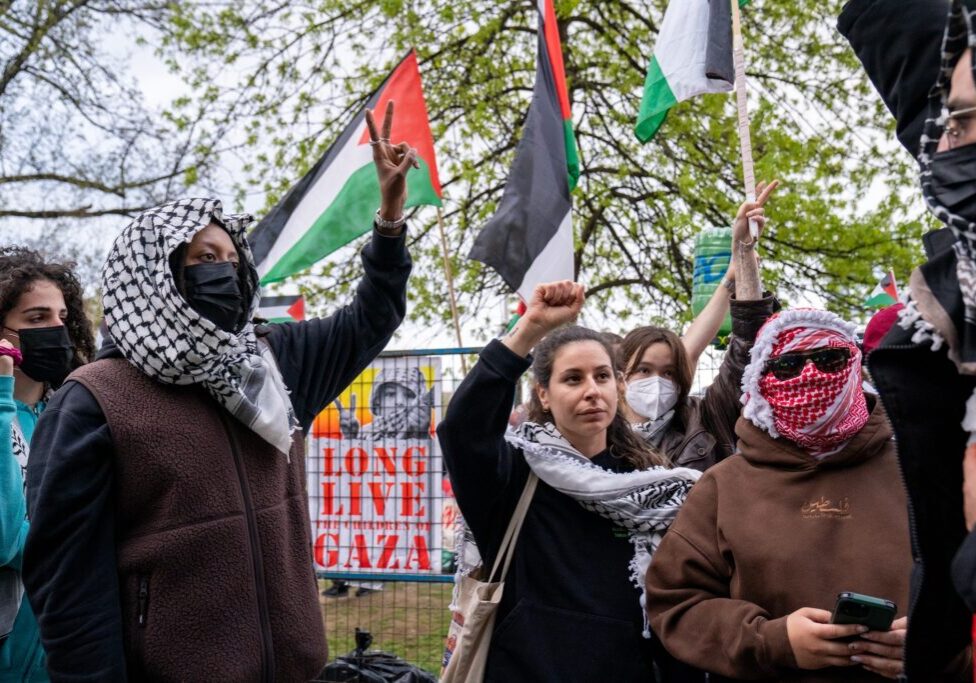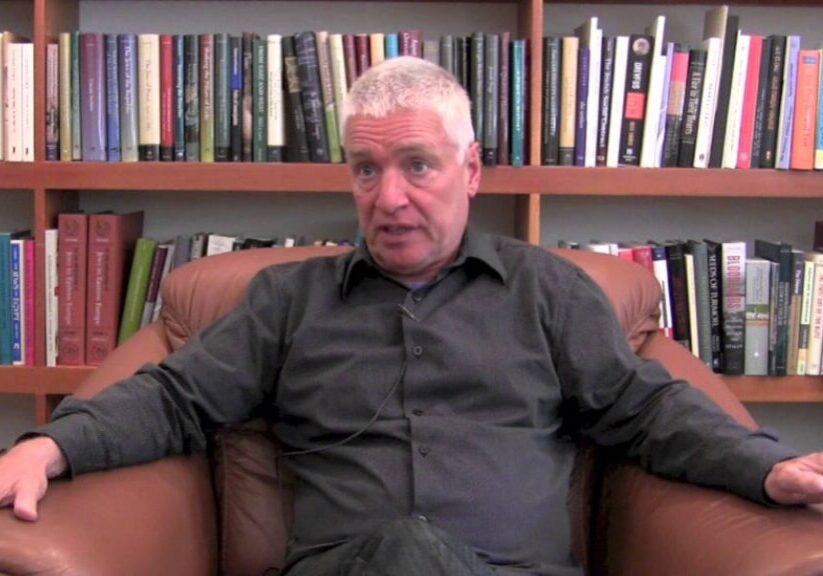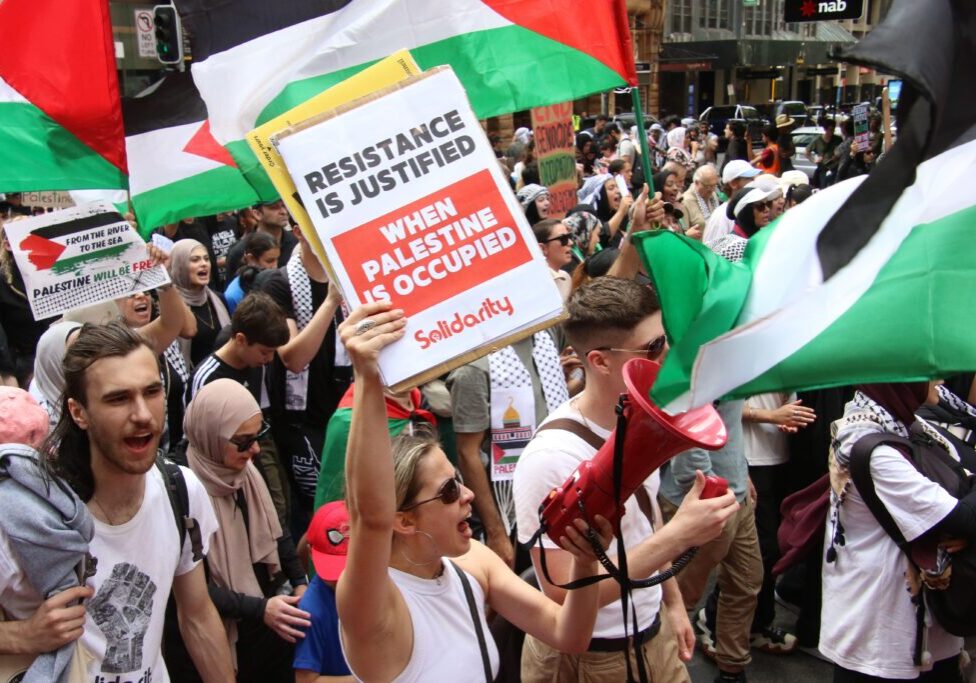Australia/Israel Review
Scribblings: The “Ethnic Cleansing Solution” re-affirmed
Mar 3, 2016 | Tzvi Fleischer

Tzvi Fleischer
In this column last October, I wrote about what polls show most Palestinians want out of a resolution of the Israeli-Palestinian conflict. I noted that Palestinians who, in a recent poll, said they want either a “two-state solution”- an independent Palestinian state alongside Israel – or a “one-state solution” – meaning a single state “in all of the land in which Palestinians and Jews have equal rights” – total up to only a minority of those surveyed. A plurality of Palestinians said instead they wanted the “main Palestinian national goal” to be “reclaiming all of historic Palestine from the river to the sea.”
I argued, based on statements from numerous Palestinian sources, that for many, perhaps even most, Palestinians, this “reclaiming all of historic Palestine” goal is actually a quest for an “ethnic cleansing solution” – the removal of all or most Jews from “historic Palestine”.
As I also noted, this is not a strategic aim Palestinian spokespersons and representatives usually explain to Western audiences, knowing it would be counter-productive. Yet no less a personage than the Palestinian representative to the UN Human Rights Council, Ambassador Ibrahim Khreisheh, has confirmed that such ethnic cleansing of Jews is a goal being sought, or at least considered, by the leadership of the supposedly moderate Palestinian Authority (PA).
Speaking on official PA TV, controlled directly by the PA government, on Feb. 4, Khreisheh stated:
Our problem is that the Jews came to Palestine from outside the region, colonised and established their own state… I believe that President Putin’s message is very important. He declared – about two weeks ago, I believe – that Russia was ready to accept back all the Russian Jews who are suffering throughout Europe. Therefore, if the Israelis continue on this track, it may be useful to consider asking many countries, Arab countries, European countries and other foreign countries, to allow their Jews to return to their former lands and homes… Then we, the Palestinians, will return to be the way we were.
Now, to be fair, Amb. Khreisheh was not stating this unconditionally as the overall Palestinian goal, as Hamas leaders often do. He put the idea forward that countries throughout the world could take back all their Jews as a “useful” idea, necessary because “this ‘promised land’ within Israel is not large enough for [the Jews], and they have begun to take over our lands in the West Bank with their settlements,” implying that co-existence with Israel might be possible under some circumstances.
Nonetheless, he was repeating an idea long present in Palestinian discourse to a Palestinain audience – the Jews came here and stole “our land”, the only truly just solution is that they get out and go back where they came from. He was reassuring Palestinians that the ruling party still has this idea in mind and will return to this goal if other measures – such as current efforts to get the UN to demand Israel give the Palestinians statehood without a peace treaty – fail.
Interestingly, Khreisheh phrased his statement as if this ethnic cleansing of Jews would be voluntary. States would agree to “allow” the Jews to return, as if Israel’s 6.3 millions Jews – 80% of whom were born in Israel – were just waiting for permission to leave and no coercion would be necessary.
Khreisheh probably phrased it this way because he knew what he is actually advocating – ethnic cleansing of a population – is a clear crime against humanity. This is telling, because Khreisheh clearly knows something about the subject of international law. He has featured in these pages once before – during the 2014 Gaza war, he admitted, correctly, on PA TV that every missile being fired at Israeli civilian targets “constitutes a crime against humanity.”
Protesters target Palestinian dissidents, too
Readers will be aware that internationally, Palestinian advocates, particularly on campus, are frequently and determinedly trying to shut down Israeli speakers, no matter how pro-peace and no matter what their reputation.
For instance, at Brown University in the US on Jan. 28, student protesters tried unsuccessfully to shout down an event featuring legendary Soviet dissident and noted author and intellectual, Natan Sharansky, who was speaking with veteran Hollywood actor Michael Douglas about Jewish identity.
Earlier, on Jan. 19, protestors had succeeded in preventing a talk at Kings College, University of London by former Shin Bet head Ami Ayalon – a strong advocate for Israel to do more to bring about a two-state peace. Protesters reportedly threw chairs, broke windows and pulled the fire alarm no less than 15 times before the building had to be evacuated and the talk abandoned. (Ayalon was able to speak at a later date.)
But you do not have to be Israeli or even Jewish to attract such efforts to prevent your speech and even threats of violence. Palestinian human rights activist Bassem Eid, who visited Australia last year, had to be escorted from the stage by police at the University of Chicago on Feb. 18, after being threatened by members of the audience. On top of repeated interruptions by protesters, one man, claiming to be from Gaza, reportedly yelled at him in Arabic, “I’m going to destroy this place!”, “I’m going to kill this motherf*****!” and “Wait until you go to your car!”
Eid is a veteran human rights activist who grew up in the Shuafat refugee camp in east Jerusalem. He got his start as a researcher for the B’Tselem human rights group critiquing Israeli practices, but later also became very critical of the way the Palestinian leadership often abuses the rights of its own people. He opposes BDS as counter-productive. Apparently, this is enough for activists to try to prevent you from speaking and threaten your life, even if you are a Palestinian who grew up as a refugee.
This article is featured in this month’s Australia/Israel Review, which can be downloaded as a free App: see here for more details.
Tags: Anti-Zionism






